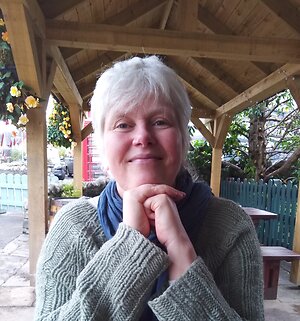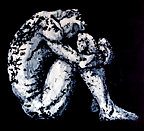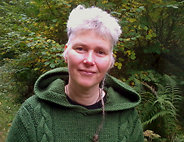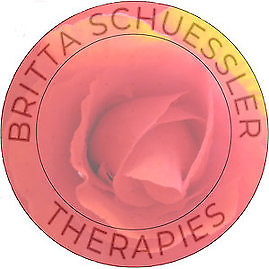Mission statement
My work
I work in different ways depending on what you need.
In my experience mental health is affected by several components:
your past experiences like traumas, upbringing, life events (good and bad)
- your physical health
- your life style and habits including your sleep patterns, what and how you eat, your activity levels and addictions
- your relationships and especially your relationship to yourself
- your beliefs and assumptions
- your coping strategies
With this in mind I like to work in a holistic, integrative way. This means that I might want to explore any of the above aspects that are not strictly speaking psychological, like your eating habits or sleep patterns) and make suggestions, like taking supplements, or trying out different ways of being. These suggestions are not compulsory or mandatory for our work. They are simply offerings of information that you can decide to try out or not.
I am an accredited and registered member of the COSCA Counselling & Psychotherapy in Scotland and adhere to their code of ethics. I am committed to keep your personal information safe. Please see my Privacy Policy for more information.
Frequently asked questions
How long is a session?
A session usually takes an hour.
If you choose to do trauma therapy we usually need 1.5 hours per session.
Do you do online therapy or telephone counselling?
I see people in person in my therapy room. I only offer online work, or teplephone sessions under exceptional circumstances and only to clients I have already worked with in person.
Where is your practice?
At present I have a room in Stirling. The address is in the sidebar on the right.
Do you do home visits?
I am happy to do home visits for people who have great mobility problems or suffer from agoraphobia.
How much do you charge?
My fee is £60 per hour. My initial session is free of charge. If you think you cannot afford to pay these fees, talk to me. I am happy to discuss a discount.
Do I have to come weekly?
No, if you find that weekly is too intense for you or not possible because of your lifestyle or finances, I can see you on a fortnightly basis.
We can discuss what suits you best in our initial session.
How many session might I need?
This depends very much on what your issues are, how ready you are to engage and how deeply you want to go into your healing.
How will I know which approach is right for me?
You can have a look at the page called Trauma. It can help you to determine, if you might suffer from unresolved trauma. We will decide in the initial session which approach is most suitable. However, if in the course of our work together I come to believe that a different approach might be more helpful, I will suggest changing at any of the following sessions. Every six sessions we will review the work we are doing and decide how we proceed from here.
For any other questions or to book an initial free session use the email form in the sidebar or call me on 07801413442.
What is Counselling?
Counselling is another word for talking therapy. It is about your journey towards yourself. It is about finding ways of enhancing your experience of life, giving you the power to make the choices that are right for you and to heal what might need to be healed from past experiences. This can be done in many ways.
The way I work is called integrative. My core practice is Person Centred and I have added many other ways of working to enhance my ability to meet your needs. Person Centred means that my main focus as a counsellor is on creating a safe environment for you to enable you to look at the issues that brought you here. I will use my expertise to support you and bring in whatever tools I think will be helpful to enable your process. I am passionate about empowering you to become who you want to be.
We will decide in the initial session which approach is most suitable. However, if I believe that a different approach might be more helpful, I will suggest changing at any of the following sessions. Every six session we will review the work we are doing.
What is Trauma Therapy?
Like counselling, trauma therapy can be done in many different ways. If you are not sure whether you need trauma therapy or not, have a look at my page on Trauma. The techniques I use are based on brain therapy and somatic processing. Below I give you some information on the types of trauma therapy that I use:
Deep Brain Reorienting
This is the approach I have used most with my clients over the last few years. It is a very new form of working with trauma and the impact of adverse childhood experiences. This approach has been developed by Frank Corrigan. The reason why I use it more than any other of the modalities I am trained in is twofold. For one it is closely linked to mindfulness. For another - unlike Brainspotting or the Comprehensive Resource Model - it does not require you to learn a lot to make it work for you. This approach is very gentle and helps people to stay in a calm place in their mind when they look at the things that have been very difficult for them. It is based on brain science and works with the brains innate healing ability.
Brainspotting
Brainspotting is a relatively new type of psychotherapy designed to help people access, process, and overcome trauma, negative emotions, and pain, including psychologically-induced physical pain. It was developed by David Grand out of EMDR (eye movement desensitisation and reprocessing therapy).
Although Brainspotting is primarily used in trauma therapy, it also helps people with recovering from injuries and health problems, developing motivation or confidence, overcoming attention problems, stress, addiction and other negative emotions. It can also help with enhancing your performance levels. Many everyday psychological problems, such as anger, procrastination, and anxiety can be successfully dissolved using Brainspotting.
During Brainspotting therapists aim to help people position their eyes in a way that enables them to target the sources of negative emotions. The assumption is that where people look is connected with how they feel. By focusing the eyes on a spot that is linked to the experience and by simultaneously staying in touch with the felt sense of the experience in the body people enable the brain to reprocess and heal. There is some evidence that Brainspotting works primarily on the limbic system. The limbic system is a part of our brain that plays a role in emotion, long-term memory, cognition, motivation, impulse control and several other psychological factors that can affect wellbeing. This means that instead of working with your thoughts and beliefs, which most talking therapies do, this method works with older parts of your brain and your nervous system that have been affected by past events. It targets the root cause of the problem rather than the symptoms and therefore causes faster changes and more thorough healing to occur.
If you want to learn more about this watch this video where David Grand the developer of this method is talking about Brainspotting.
The Comprehensive Resource Model
The Comprehensive Resource Model (CRM) has been developed out of Brainspotting by Lisa Schwarz. It uses the same approach but Lisa has added a lot more supportive techniques to ensure that people can safely go into their issues. Because Brainspotting is such a powerful tool, it has become apparent that for some people, especially those with issues reaching back to childhood and with complex trauma, it is safer to use CRM rather than Brainspotting.
CRM unlike Brainspotting is deliberately including techniques to heal emotional and psychological wounding that has occurred through lack of secure attachment in early childhood.
If you want to understand more about the Comprehensive Resource Model, here is a link to Lisa Schwarz's website.
Egostate Therapy
Most therapeutic modalities acknowledge in one way or another that we tend to be more of a tribe or a family or a group of different personalities than just one entity. They are called, sub-personalities, or parts, or egostates (and probably a lot of other names besides, depending on the therapeutic modality). We all have them to a larger or smaller degree and there is a spectrum where at the one end you would have a truly integrated person and at the other there is someone with a dissociative identity disorder. Most of us experience some sorts of sub-personalities in operation. This does not indicate that you have a serious mental health issue. Here is a definition from Wikipedia what Egostates are about:
Psychological processes do not exist on an either/or basis. Things such as moods and emotions like depression, anxiety, and fear exist on a continuum with differing degrees of intensity. It is the same with differentiation-dissociation. Disorders such as multiple personality disorder are often in the extreme end of the continuum that begins with normal differentiation. It is a matter of intensity. Therefore, the general principle of personality formation in which the process of separation has resulted in discrete segments, called ego states, with boundaries that are more or less permeable. Where however an ego state is a response to psychological trauma, it may remain completely walled-off from the rest of the personality.[4]
Ego states exist as a collection of perceptions, cognitions and affects in organised clusters. An ego state may be defined as an organized system of behavior and experience, whose elements are bound together by common principle. When one of these states is invested with ego energy, it becomes "the self" in the here and now. This state is executive, and experiences the other states which are then invested with object energy.
Ego states vary in their volume. A large ego state may include all the various behaviors activated in one's occupation. A small ego state are the behaviours one experiences in a simple action, such as using a mobile phone. They may represent current modes of behavior and experiences or, as with hypnotic age regression, include many memories, postures, feelings, etc. that were apparently learned at an earlier age. They may be organised into different dimensions. For example, an ego state may be built around the age of 10. Another one may represent patterns of behaviour toward a father, or authority figures and thus overlap with experiences from the age of 10. Behaviours to accomplish a similar goal may be uniquely different from one ego state to another, especially in true multiple personalities.
The fact that different Eogstates have different goals and differnet ideas about how to reach a goal is what Egostate therapy helps to address. Egostate therapy means that we bring those different states out into the open and have them have a dialogue with each other. In this way these states learn to acknowledge each other and work with each other. This in turn leads to a more harmonious and integrated sense of self and less inner conflict.
It can help with addictive behaviours; for example, you decided firmly when you got up in the morning that you will not binge eat in the afternoon. And when the afternoon comes you find yourself yet again overeating. There are clearly at least two different parts at play here, who do not have the same ideas about what is important or how to go about with it. They may, or may not be aware of each other, but they are clearly not working together. When we do Egostate therapy work these parts have a chance to get to know each other and to learn to respect and cooperate more with each other. This is particularly important, if there are parts that have been traumatised in the past.
My background
I worked for 5 years as a bereavement counsellor for Cruse Bereavement Care Glasgow which gave me a lot of insight into the complexity of loss and bereavement. This led me to work for 2 years as a counsellor in the Prince and Princess of Wales hospice in Glasgow. I helped people there to come to terms with being terminally ill and what that meant to them.
I spent 3 years volunteering for the Tom Allan Centre in Glasgow which was great in terms of getting a lot of experience working with a large variety of issues like stress, anxiety, depression, anger, self-harm and relationship problems.
I also worked 7 years for Victim Support Glasgow which made me appreciate how differently we all respond to life's events. It highlighted to me strongly that we can be deeply affected by seemingly small incidents, not just by big things and that this can severely undermine our confidence and ability to cope.
After Victim Support I worked 4 years as an alcohol counsellor for the Glasgow Council on Alcohol. This work confirmed my suspicion that addiction more often than not is a form of self-medication, a way of masking or dealing with underlying issues. Many people develop addictive or compulsive behaviours in order to cope with past events like abuse, bullying, losses, trauma, and issues like depression, anxiety, or low self-esteem. This led me to train in trauma therapy, because my experience over the years had shown me that normal talking therapies often do not really help to heal the source of the problems people have.
I also worked with groups at the Glasgow Council on Alcohol as a life coach. The courses I ran were designed to help with the underlying issues that cause people to drink. Issues like stress, anxiety, anger, and lack of confidence.
Underpinning and supporting all of my work is extensive training in a great variety of methods as well as over 25 years of Mindfulness practice.
My qualifications
Qualifications:
Certified Mindfulness Teacher (Tara Brach and Jack Kornfield) 2021
Certificate in Becoming Safely Embodied (Deirdre Fay) 2016
Certificate in Advance CRM and Core Self (Lisa Schwarz) 2015
Certificate in CBT Toolkit 2014
Certificate in the Comprehensive Resource Model (CRM) (Lisa Schwarz) 2013
Certificate in Brainspotting (Phase 1 & 2)(David Grant) 2013
Accredited Alcohol Counsellor 2012
Certificate in Psychotherapy and Positive Psychology 2011
Certificate in Coaching 2011
Diploma in Person Centred Therapy (PCT) 2005
Certificate in Bereavement Counselling 2003
Counselling Skills 2002
MA in Critical & Cultural Theory 1995
Other training
Advanced Deep Brain Reorienting: using Alexander Technique interweaves (Frank Corrigan/ Martin Warner) 2023
Working with Parts in Dissociative Disorders (Dolores Mosquera) 2023
Advanced Deep Brain Reorienting: dissociation (Frank Corrigan) 2022
Working with Shame (Deran Young, Terry Real, Pat Ogden) 2022
Advanced Deep Brain Reorienting: attachment shock (Frank Corrigan) 2021
Deep Brain Reorienting (Frank Corrigan) 2018
Mindfulness (Tara Brach and Jack Kornfield) 2018
Family Constellations (Ian Fuller) 2018
Focusing 2017
Working with Guilt and Shame (Deirdre Fay) 2016
Becoming Safely Embodied (Deirdre Fay) 2016
Self Empowerment 2014
Working with clients who have experienced Trauma 2014
Trauma Release Exercises & Somatic Experiencing (Introduction) 2013
ASIST (Applied Suicide Intervention Skills Training) 2013
Motivational Interviewing 2012
Group Therapy Skills 2012
Mental Health First Aid 2011
Working with Survivors of Sexual Abuse 2010
Support after Sudden and Violent Death 2009
Focusing 2008
Managing Change 2007
Problem Solving 2007
Working with Anger 2004







